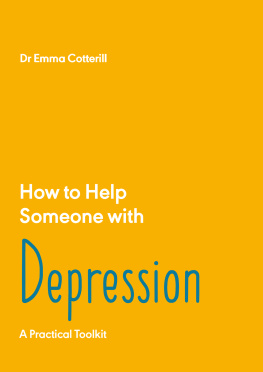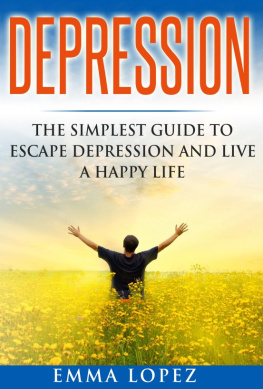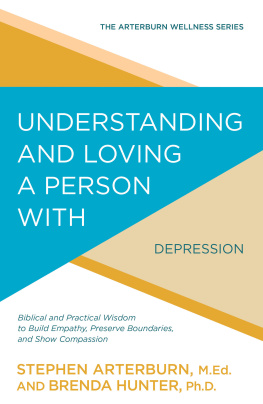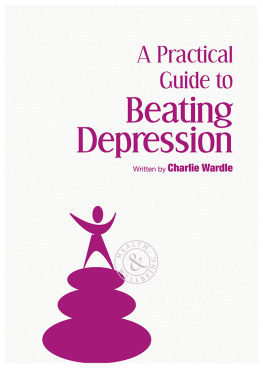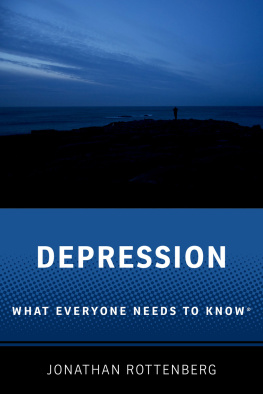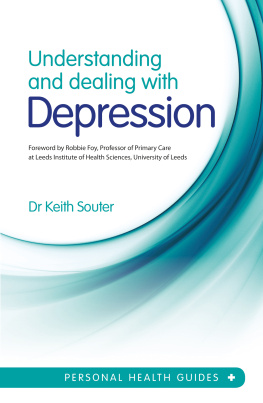


A Trigger Book
Published by Welbeck Balance
An imprint of Welbeck Publishing Group
20 Mortimer Street
London W1T 3JW
First published by Welbeck Balance in 2021
Copyright Emma Cotterill, 2021
Emma Cotterill has asserted her right under the Copyright, Designs and Patents Act, 1988, to be identified as the Author of this work.
All rights reserved. No part of this publication may be reproduced, stored in a retrieval system, or transmitted in any form or by any means, electronically, mechanical, photocopying, recording or otherwise, without the prior permission of the copyright owners and the publishers.
A CIP catalogue record for this book is available from the British Library
US eBook ISBN: 978-1-80129-034-0
UK eBook ISBN: 978-1-80129-061-6
Typeset by Lapiz Digital Services
Note/Disclaimer
Welbeck Balance encourages diversity and different viewpoints. However, all views, thoughts, and opinions expressed in this book are the authors own and are not necessarily representative of Welbeck Publishing Group as an organization. All material in this book is set out in good faith for general guidance; no liability can be accepted for loss or expense incurred in following the information given. In particular, this book is not intended to replace expert medical or psychiatric advice. It is intended for informational purposes only and for your own personal use and guidance. It is not intended to diagnose, treat or act as a substitute for professional medical advice. Professional advice should be sought if desired before embarking on any health-related programme.
www.welbeckpublishing.com
ABOUT THE AUTHOR
Dr Emma Cotterill is a clinical psychologist experienced in supporting people with a range of mental health difficulties, including depression. She also works in neuropsychology, supporting those who have sustained life-changing brain injuries. Alongside individual psychological therapy work, Emma is a trainer, writer and supervisor, and is passionate about mental health education and supporting wellbeing.
She lives in Surrey, where she is a parent and enjoys fitness, reading, music and paddle boarding. You can read more about Emma and her work here: www.empowerpsychology.co.uk
This book is dedicated to every person supporting someone with depression right now.
CONTENTS
INTRODUCTION
If you are reading this, it is likely that depression has touched your life in some way. You may be looking to learn more about supporting a person with depression for yourself, or on behalf of others. You may know someone who is experiencing depression now or who has done so in the past. You may be struggling yourself. You may be worried, sad, stressed, frustrated, overwhelmed. You may be feeling unsure, at a loss, worn out, confused, angry, guilty, hopeless. It is understandable to have all these feelings and more.
You are likely here because you want to help. Because you want to understand. Because you need hope. Because you need to find the light not only for the person with depression, but for yourself too.
Supporting a person with depression can be really tough. Throughout this journey, it is important to be kind to yourself. Then be even kinder.
You are likely here because you need hope. Because you need to find the light not only for the person with depression, but for yourself too.
ABOUT ME
As a clinical psychologist, Im passionate about psychology and providing therapeutic services to help people. Im also a parent, friend, daughter, sibling, partner and colleague. I know how difficult it can be to see someone you care about overcome with the darkness, loneliness and heaviness of depression. I understand how hard it can feel when supporting someone with depression, how you can worry about doing or saying the right thing, and at times feel exhausted or worn down by it all.
I am grateful for the experiences that have helped me understand depression from many different perspectives, and I am honoured and privileged to have been able to sit alongside my clients, friends, colleagues and loved ones as they have talked about their experiences with depression and to have been able to support them along their journey.
HOW THIS BOOK WORKS
This book is written for you, so that you can have a better understanding of depression and how to help. It is divided into two parts:
In you will build up your understanding of depression the signs and symptoms; what can lead to a person experiencing depression; and what the experience can be like.
focuses on your supporting role what to say, what to do, and how. And also what not to say and do. We will explore the core skills, strategies and approaches you can draw on to support a person with depression, giving you the tools to respond to the challenges the depression brings.
As you reach the end of the book, you will learn about the professional support available for the person you are helping, as well as how to take care of yourself.
I would like to invite you to create a toolkit for yourself of knowledge, understanding, skills, strategies, self-care and resources, which will help you understand and support the person with depression as best you can, whilst maintaining your own self-care and boundaries.
THE SUPPORTERS TOOLKIT
As you read this book, I would like to invite you to create a toolkit for yourself of knowledge, understanding, skills, strategies, self-care and resources, which will help you understand and support the person with depression as best you can, whilst maintaining your own self-care and boundaries.
Throughout each chapter, we will add to your toolkit, which will include:
Developing a knowledge of depression
Understanding the lived experience of depression
Understanding what you bring to the situation as a supporter, with your own thoughts, feelings, experiences, coping styles and expectations
Practical ways you can help and support what you can say and do
Where to find support for the person with depression.
How you can look after yourself, so you can be the most effective supporter you can be
A library of resources, and further reading should you want to explore further
As you work through this book, and build your toolkit, I would encourage you to highlight parts of the book to help you remember and find key points at a later date.
TERMINOLOGY
The person you are supporting could be your friend, family member, partner, neighbour, colleague, employee, or someone else you have a relationship with. You may be very close, or you may be an acquaintance who cares. To capture the range of these relationships and the experience of living with depression l will talk about the person with depression throughout.
Amongst people who experience depression, there is a range of words that people use to describe their experience. Some people talk about their depression as an experience, some talk about it as a mental health condition, problem, or as an illness or ill health. Throughout this book I will mostly refer to the experience of depression as a mental health condition. However, you, and the person with depression may feel more comfortable with one description over another, and that is OK.
SHARED STORIES
To help understand depression fully, I have shared words and stories from some incredible people who have experienced depression, and who have kindly contributed to this book. I am grateful to every person who has shared their words to help us understand depression from their lived experience. I hope you find these stories as helpful and inspiring as I did when listening to them.
Next page
